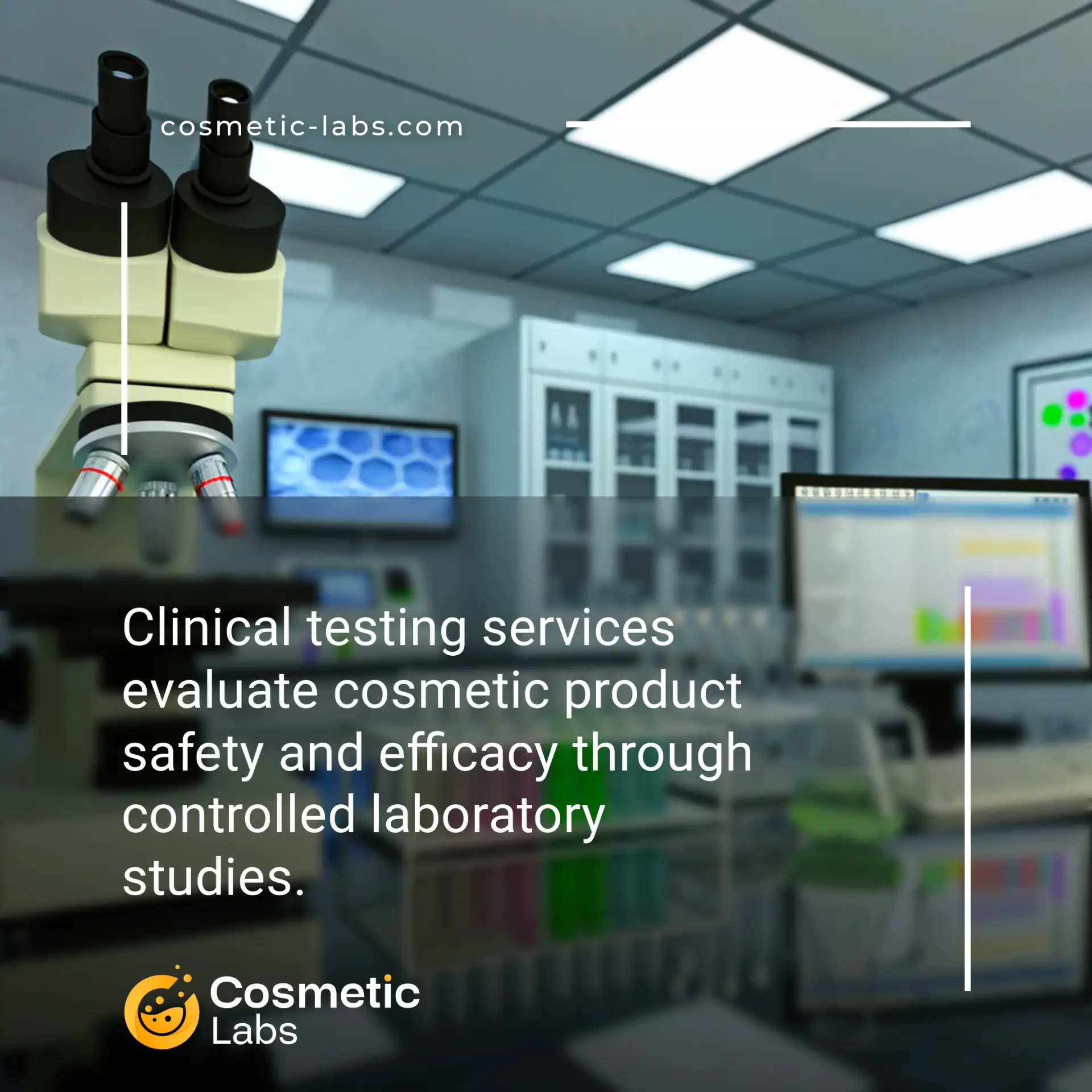Clinical Testing Services for Cosmetic Product Safety

What is Clinical testing?
Clinical testing services evaluate cosmetic products through controlled studies that measure safety, efficacy, and consumer response before market launch. These tests include patch testing for skin irritation, consumer use studies with real participants over 4-12 weeks, and dermatologist-supervised trials that generate the clinical data needed for product claims. Labs on our platform conduct these studies to help brands substantiate marketing claims like “clinically proven” or “dermatologist tested” with documented results.
Why do you need this service?
Cosmetic labs on our platform provide clinical testing to help you avoid costly product recalls, secure retail partnerships, and differentiate your brand in competitive markets. These services reduce liability risks, enable premium pricing through validated claims, and meet mandatory requirements for international distribution. Clinical data accelerates regulatory approvals, strengthens investor confidence, and provides marketing assets that resonate with safety-conscious consumers.
Who provides Clinical testing services?
All cosmetic labs providing Clinical testing services
There is no company providing these services at the moment.
Clinical Testing Services
Clinical testing services evaluate your cosmetic products on human volunteers through controlled studies that demonstrate safety, measure efficacy, and assess consumer acceptance. These human trials provide the real-world evidence required for regulatory approval and marketing claims worldwide.
Safety Assessment Studies
Labs conduct dermatologist-supervised testing to identify potential allergens, irritants, and sensitization risks before your product reaches consumers. These protocols follow standardized methodologies to ensure product safety for target demographics.
Efficacy Validation Studies
Clinical efficacy trials use instrumental measurements and expert clinical assessments to validate product performance claims. These controlled studies generate quantifiable data that supports marketing messages and differentiates your products in competitive markets.
Consumer Use Studies
In-use trials evaluate how target consumers experience your products in real-life conditions. Participants document their experience while using products at home, providing insights into sensory attributes, usage patterns, and overall satisfaction.
Connect with verified labs on our platform to design clinical testing protocols that match your product claims, target market, and regulatory requirements.
4 subcategories of Clinical testing services
There are no results matching your search
Clinical Testing Applications in Cosmetic Product Development
Beauty brands rely on clinical testing services to validate product claims, ensure consumer safety, and meet regulatory requirements across global markets.
Safety and Efficacy Validation
Patch testing protocols identify potential allergens and irritants before market launch. Labs conduct 48-hour and 72-hour occlusive patch tests on 25-50 volunteers to detect contact sensitization reactions. Dermatologist-supervised studies provide the clinical evidence needed for hypoallergenic and sensitive skin claims.
Efficacy testing measures specific product benefits through controlled trials. Anti-aging creams undergo 12-week clinical studies measuring wrinkle depth reduction, skin hydration levels, and elasticity improvements. Labs use standardized instruments like corneometers and cutometers to generate quantifiable data for marketing claims.
| Test Type | Duration | Sample Size | Primary Outcome |
|---|---|---|---|
| Patch Testing | 48-72 hours | 25-50 subjects | Irritation/sensitization assessment |
| Anti-aging Efficacy | 8-12 weeks | 30-60 subjects | Wrinkle reduction percentage |
| Acne Treatment | 12-16 weeks | 40-80 subjects | Lesion count reduction |
| Sun Protection | 24-48 hours | 10-20 subjects | SPF and PA rating |
Regulatory Compliance and Market Access
Clinical data supports regulatory submissions for international market entry. EU regulations require safety assessments backed by clinical evidence, while FDA guidelines mandate that cosmetic claims be truthful and substantiated. Products making therapeutic claims must be registered as drugs, requiring more extensive clinical trials.
Consumer perception studies complement clinical testing by tracking real-world satisfaction and product benefits over 2-8 week periods. This combined data supports both regulatory compliance and marketing claim substantiation across different markets – from China’s specific testing protocols to Japan’s sensitive skin requirements.
Ready to validate your product’s safety and efficacy? Connect with experienced clinical testing labs on our platform to discuss your specific testing requirements and timeline.

